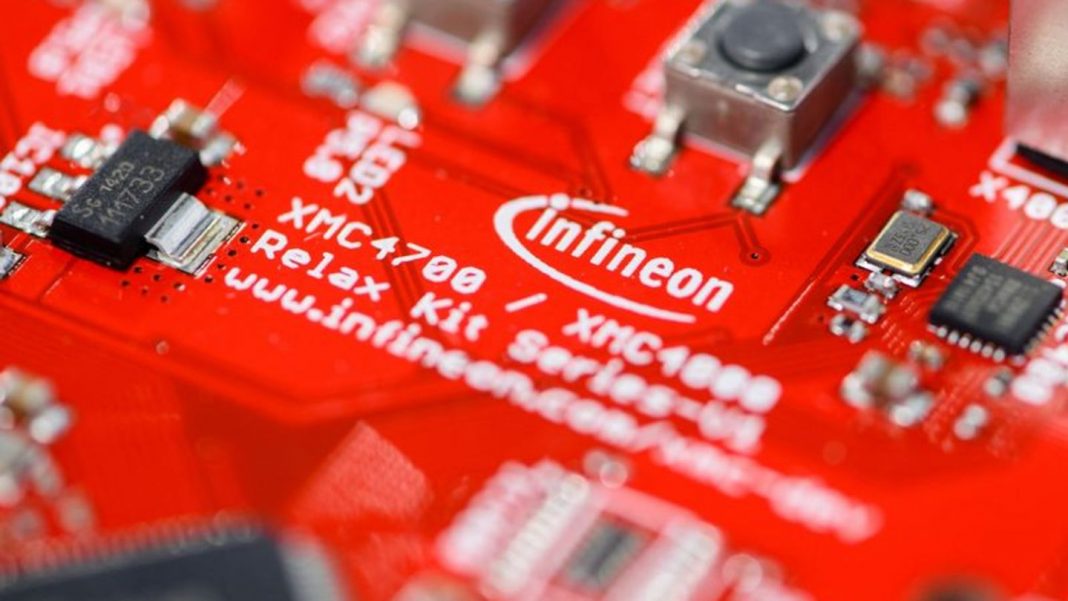Electronics
Infineon: Chip production in Europe “almost lost industry»

The Infineon logo can be seen on the board of a microcontroller kit. Photo: Matthias Balk / dpa / Archive image
Not only PCs, but also consumer electronics and especially the automotive industry is increasingly dependent on small components. Europe must become autonomous in chip production, demands an expert.
The CEO of semiconductor manufacturer Infineon, Reinhard Ploss, has criticized the EU’s competition policy.
Europe is dependent on imports from Asia for chips, but must become autonomous and regain an “almost lost industry”, Ploss demanded on Friday on Deutschlandfunk. Without this competence, not only car manufacturers and industry, but also environmental and environmental protection would be weakened. “But at the moment we are distributing very, very many stop signs in Europe,” Ploss said.
The inequality of competitive conditions is increasing. While China, Japan, Korea and the USA promoted their digital industry and even shaped cooperation, the EU is slowing down. Europe and Germany should shape and support cooperation between SMEs and large-scale industry: this “could be a factor in our differentiation,” said Ploss.
Data protection must also be handled more pragmatically. Catching up on the technical backlog in microchips is a very big challenge. “If you just put yourself in the back, you probably won’t be the winner of the next match,” Ploss said. In the German auto industry, there has been short-time work for months due to a lack of chip deliveries.


